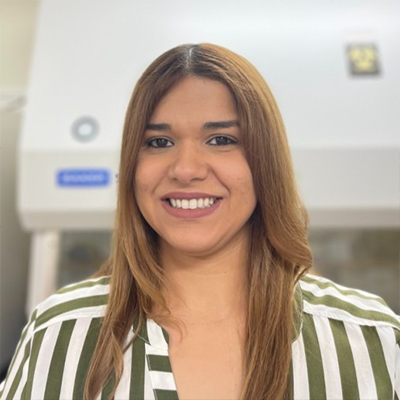Featured Grantee
Quick Facts
- Name: Carmen Milagros Ortiz Sánchez
- Comes from: Guayama, Puerto Rico
- Lives in: Ponce, Puerto Rico
- In three words: Curious, Resilient, Committed
- Leisure time activities: Going to the beach, reading, hiking, spending time with my family, and listening to podcasts
- Likes: Coffee, chocolate, good music
- Unsuspected talent: I’m a certified artisan in handmade soaps.
- Currently reading: The Stoic Challenge: A Philosopher’s Guide to Becoming Tougher, Calmer, and More Resilient by William Braxton Irvine and Atlas of the Heart by Brené Brown
In a nutshell
- My research matters because… it expands our knowledge of prostate cancer in Puerto Rican men, the leading cause of cancer-related death in our population. It also aims to improve detection, especially once the disease has spread to other organs.
- One of the inspirations for my research has been… learning about the high mortality rates among Puerto Rican men due to prostate cancer, and the lack of representation of Hispanics in related studies. There’s also a significant gap in the scientific literature on prostate cancer in Hispanics compared to other populations.
- The best thing about my job is… that I get to combine my two passions: teaching and mentoring students at all levels—high school, undergraduate, master’s, and MD. At the same time, I contribute to advancing science in ways that benefit Puerto Rican prostate cancer patients.
- My career highlight so far has been… receiving the Minority and Minority-Serving Faculty Scholar in Cancer Research Award from the American Association for Cancer Research (AACR) and being selected to give an oral presentation at the AACR Annual Meeting, one of the premier global events in cancer research.
- My advice to aspiring researchers is… to work hard on both your career and your personal growth. Stay curious—curiosity drives discovery. Build your network and get to know the people around you; future collaborations often start with a simple conversation. Be patient and persistent—your hard work will pay off if you’re consistent. Your opportunity will come.
